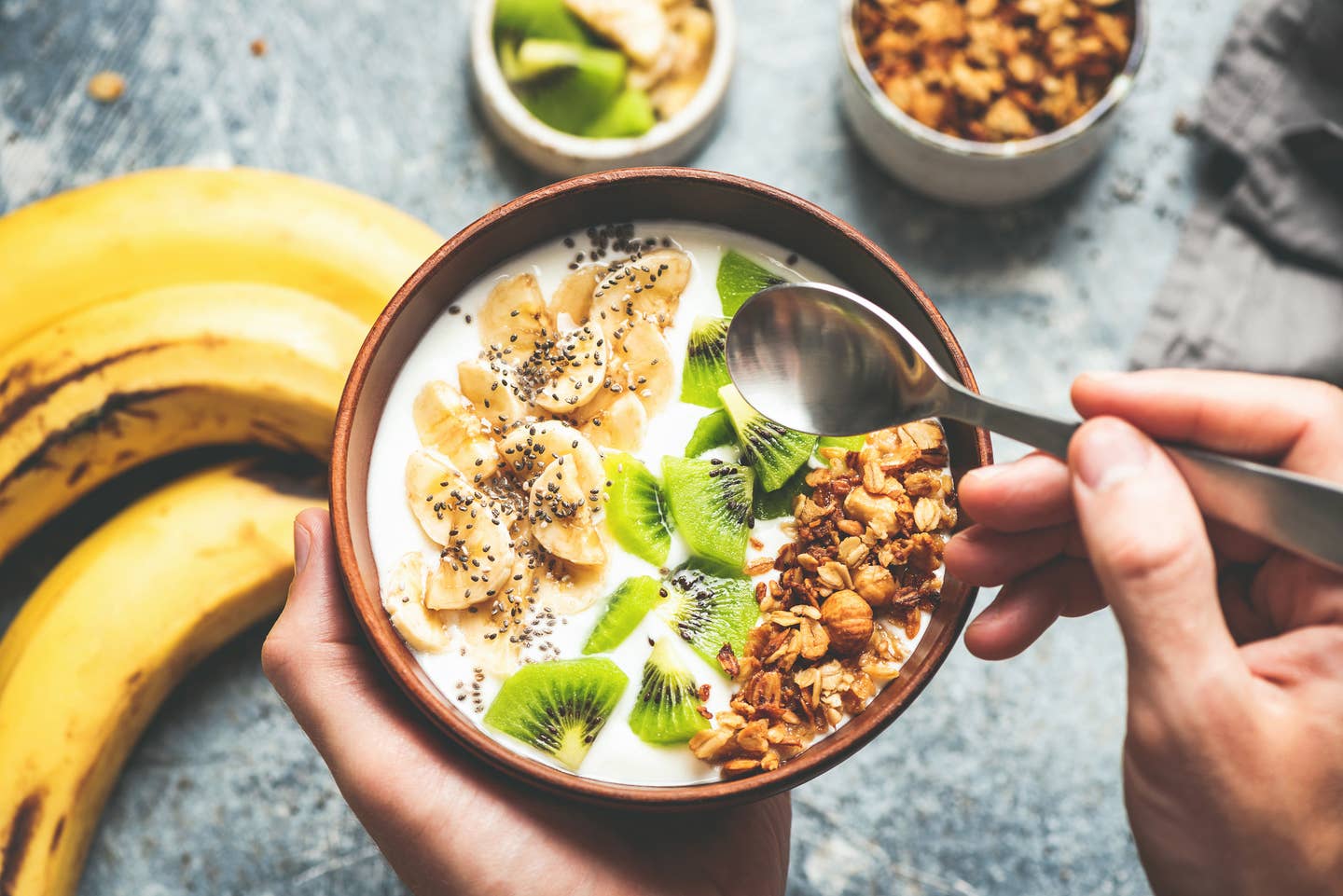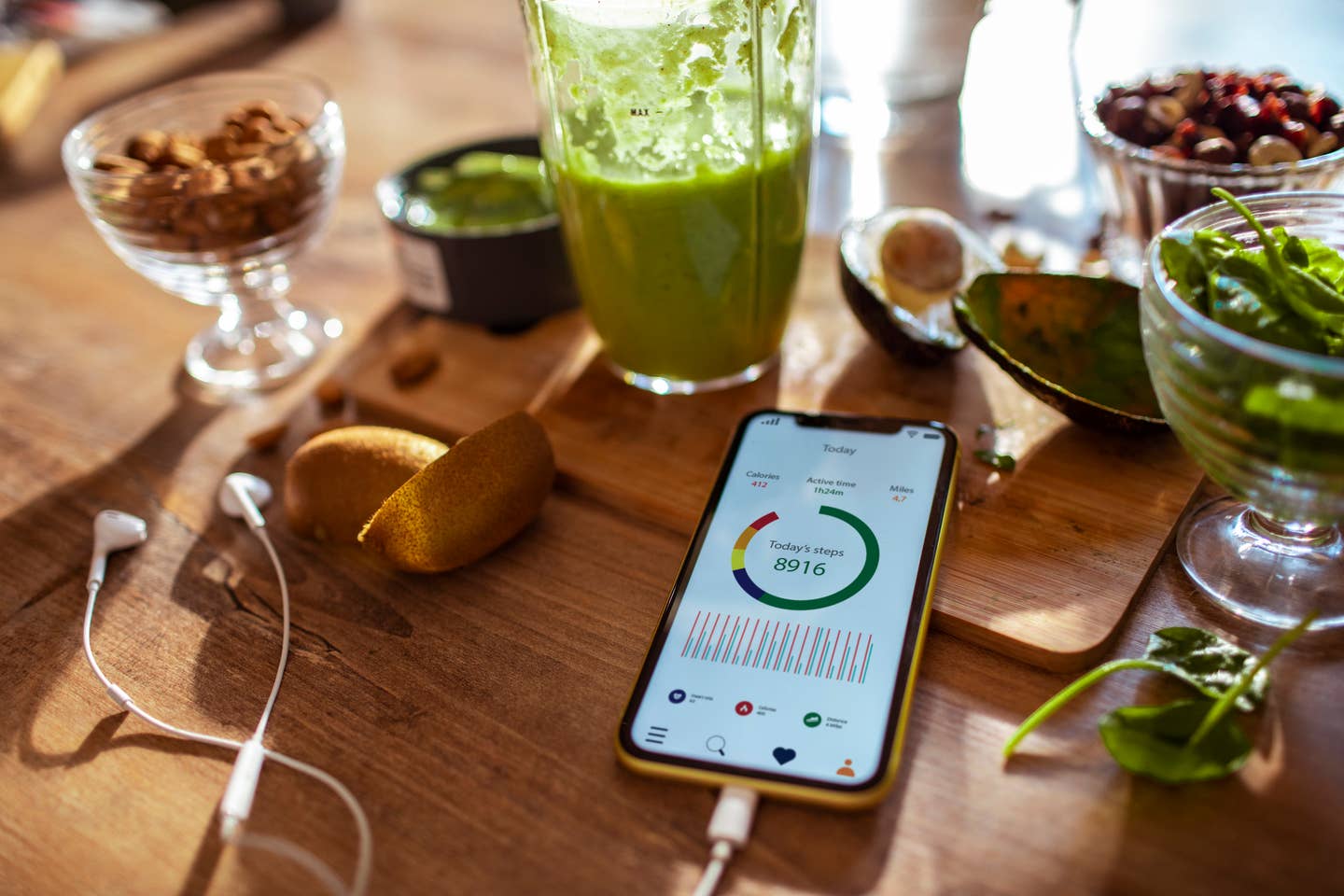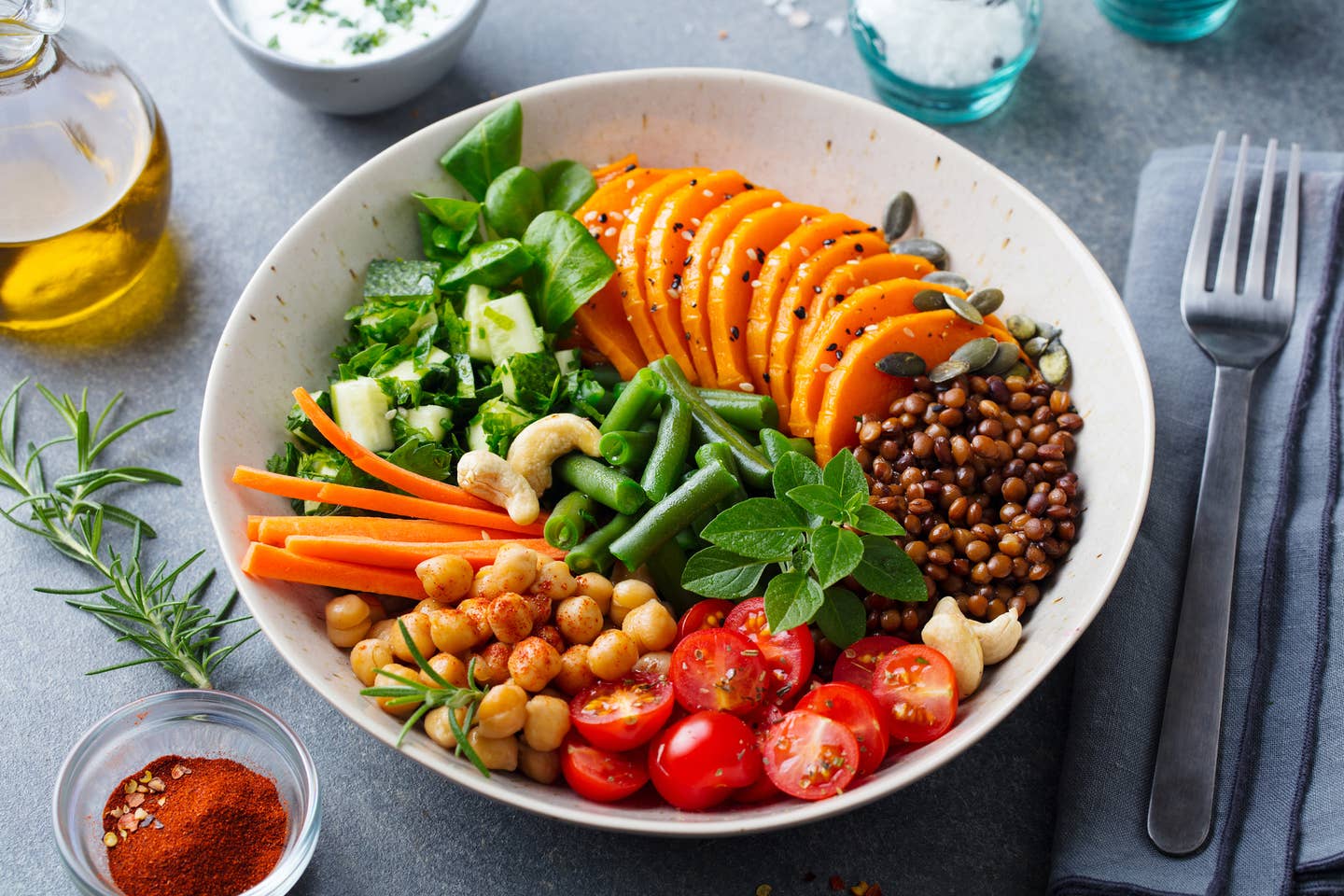
Eat According to Your Biological Clock to Burn Fat and Build Muscle
Nutrition isn’t one size fits all: The macro and micronutrients you may need are likely completely different from your sibling, spouse, and coworkers. We often focus on what we're eating and how much, but there’s a third aspect that often gets overlooked.
The newest science in weight loss may also be the oldest: Chrono-nutrition, a way of eating that pairs up with your biological clock. Chrono (meaning time) is a way of syncing your metabolism and food needs to your sleep habits, your activity, and your body's biological clock so that you eat to fuel your cells, rather than add unneeded calories that end up getting stored as fat, or worse, providing unhealthy cell growth that can lead to illness and disease.
Chrono-nutrition helps you focus on the timing of your eating and has roots in Ayurveda and ancient Chinese medicine. By following its guidelines, the belief is that you’ll get the maximum nutrition by eating at the right time, when your body needs fuel, but not eat at the wrong times when you don't, which could lead to benefits such as muscle growth and weight loss.
Obviously eating when full is never a good thing but chrono-nutrition dives deeper into your circadian rhythms to help you gain muscle, fight disease, and lose excess weight.
What is chrono-nutrition?
When you combine nutrition with your body’s own circadian rhythm, you get chrono-nutrition. Your circadian rhythm is basically an internal clock, that helps your body manage physical, mental, and behavioral cycles. This rhythm tends to respond to light and darkness, keeping us alert when it’s daylight and sleepy when it’s nighttime. This entire pattern can affect our sleep, body temperature, hormones, and appetite.
This rhythm can be completely turned upside down from different environmental stimulants. According to a 2020 study, this includes food intake (such as erratic eating behavior), light exposure (artificial light at night from electronic sources), and physical activity. When the rhythm is disrupted, it can lead to metabolic changes, like weight gain. That’s why experts believe that eating in sync with your circadian clock is important for overall health.
What research says about when to eat protein
A recent 2021 study published in Cell Reports set out to determine the best time to power up the protein to help build muscle mass. Researchers from Waseda University, led by Professor Shigenobu Shibata, fed mice two meals per day that consisted of either high protein or low protein. The results found that the mice given more protein at breakfast had increased muscle growth (specifically in their legs) compared to the impact of eating more protein at dinner which did not help build muscle mass.
The study concludes, “the ratio of muscle hypertrophy [or muscle growth] ... was 17 percent higher in mice fed lower protein at breakfast." They compared that to the mice fed higher protein at dinner, who didn't get the same benefit. It was also indicated that not only was the timing important, but the type of protein was important. When branched-chain amino acids (BCAAs) were eaten early in the day, the mice had increased the size of skeletal muscle.
You can find branch chain amino acids in foods such as:
- Nuts and seeds
- Soy products, like tofu and tempeh
- Legumes, such as beans, peas, and lentils
To confirm if this muscle growth really had to do with the circadian rhythm of eating early, the researchers tested it out on mice that lacked the genes that control the biological clock. They did the same diets and timing as on the other mice but did not see a difference in muscle.
Protein at breakfast is better for muscle growth
While the results from the mouse study are promising, it’s always important to have similar outcomes from humans. The same team recruited women to see if their grip strength and skeletal muscle index (SMI) varied depending on when they ate their protein-rich meal.
The results found that the women who had protein at breakfast instead of dinner had improved muscle function similar to the outcome of the mouse study. “Protein-rich diet at an early phase of the daily active period, that is at breakfast, is important to maintain skeletal muscle health and enhance muscle volume and grip strength,” concluded Professor Shibata.
Researchers hope the study will inform us to shift our dietary protein intake to earlier in the day, to keep muscles strong and healthy. “For humans, in general, protein intake at breakfast averages about 15 grams, which is less than what we consume at dinner, which is roughly 28 grams,” added Professor Shibata in an interview. “Our findings strongly support changing this norm and consuming more protein at breakfast or morning snacking time.”
Chrono-nutrition helps with fat burning
Potential muscle gain is only one benefit of chrono-nutrition, researchers found, since you could also see a drop in fat mass by following chrono-nutrition principles. One 2020 review published in Nutrients found that limiting your daily food window by following time-restricted eating (TRE) can benefit human health.
The review analyzed 23 articles where subjects ate by adhering to TRE, also known as Intermittent Fasting. The results found that TRE creates an average weight loss of 3 percent as well as a loss in fat mass. This change in fat loss occurred even without calorie restriction.
TRE is similar to intermittent fasting (IF) where the dietary approach requires you to limit your food intake to a 4 to 12-hour window. This leaves another 12 to 20-hour window (depending on how long you fast for) where your body is operating without incoming calories, so it learns to burn available energy in your muscles and liver, and then mobilize fat for fuel. The only difference between TRE and IF is that TRE doesn’t require a drop in overall calorie intake –which IF dieters often attempt to achieve –but it does require a consistent daily eating window. IF eating patterns can vary, which means it doesn't follow the principles of chrono-nutrition.
Not only does TRE aid in weight loss and fat loss, but it’s also protective against different cardiometabolic markers, including blood pressure, fasting glucose levels, and cholesterol.
Bottom Line: Use your natural biological clock to determine when to eat
Chrono-nutrition is a pattern of eating that focuses on the timing of eating rather than quality or quantity, keeping your diet in sync with your circadian rhythm. Recent research has linked chrono-nutrition with health benefits including muscle strength, weight loss, and cardiometabolic properties.
For more great research-based health content, check out The Beet's Health & Nutrition articles.
More From The Beet






